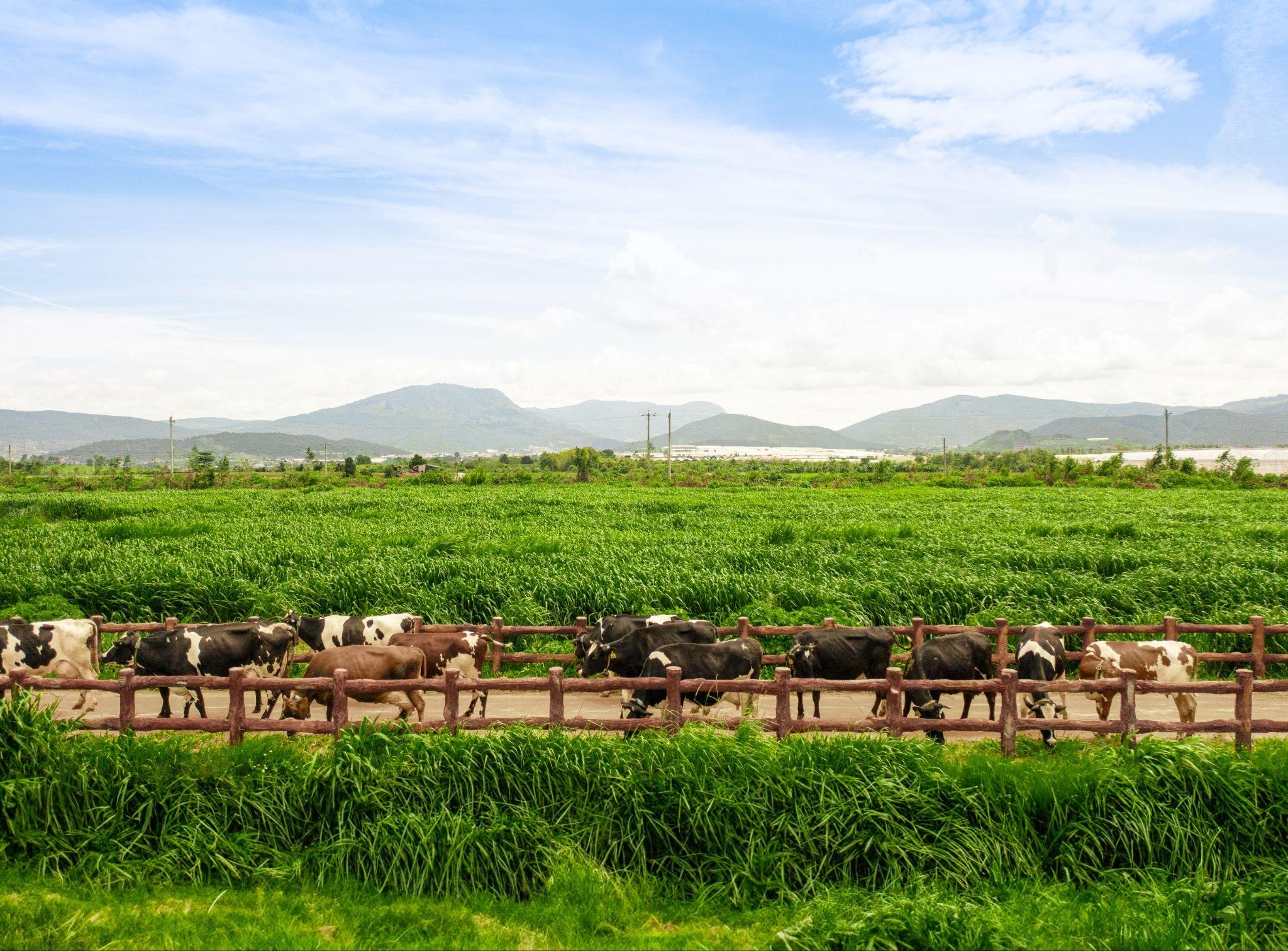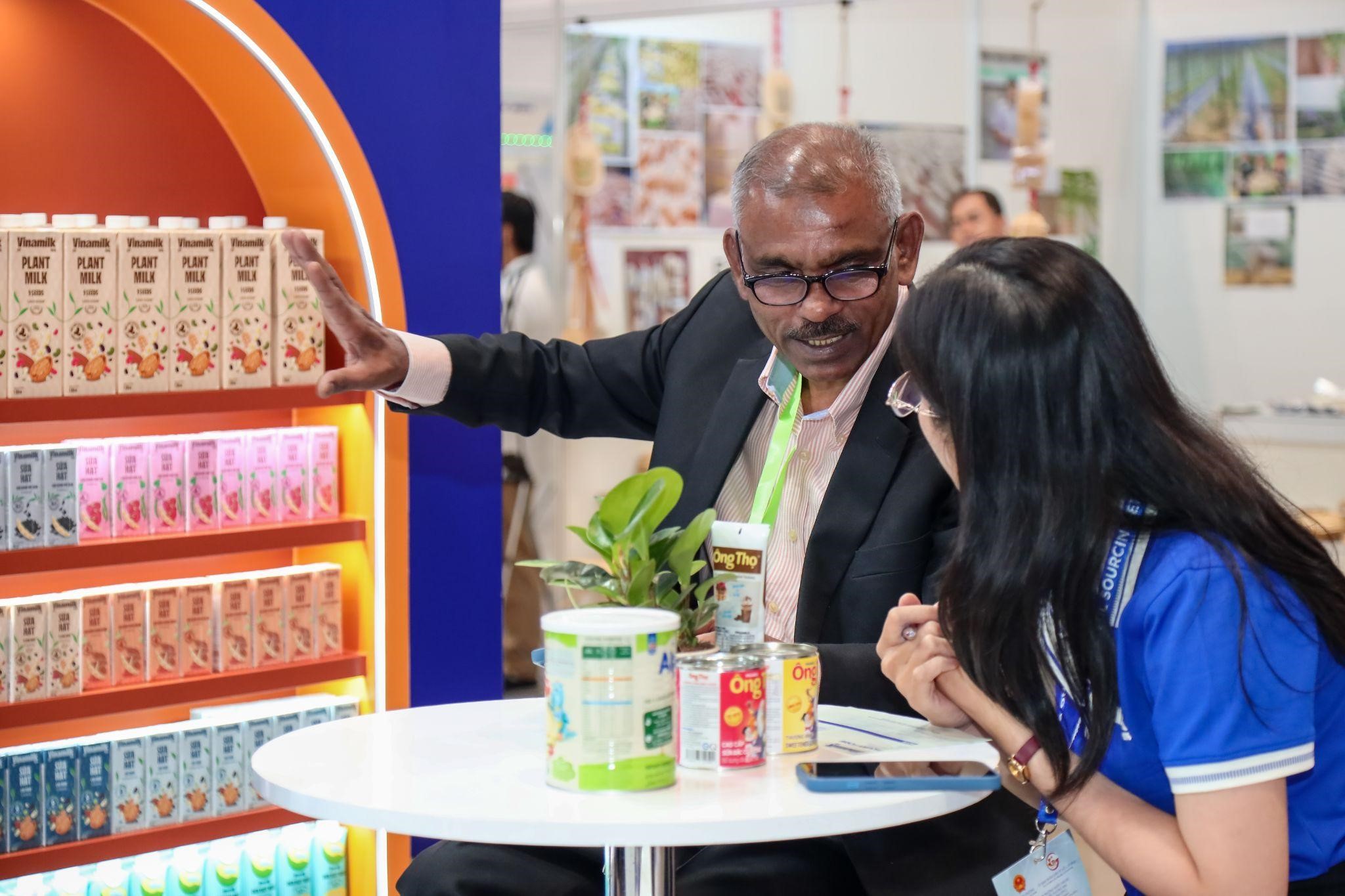In early 2024, Vinamilk proposed a "pre-cut lid with pull tab" for its 80ml HDPE bottled sterilized yogurt drinks to its New Zealand partner. This design allows consumers to open the bottle directly, eliminating the need for straws. According to the company, this small packaging change aims to reduce single-use plastic waste and improve convenience.
The market responded positively, with the New Zealand importer ordering nearly 1 million products with the new cap. Approximately 4.1 million yogurt drinks featuring this innovation will be supplied to two major retail chains in the country this year, eliminating the need for over 5 million plastic straws, according to Vinamilk's calculations.
At the 12th Vietnam Corporate Sustainability Forum (VCSF) held in Hanoi last August, Le Hoang Minh, Vinamilk's Chief Operating Officer and Head of the Net Zero Project, stated that when integrated into strategy, emission reduction activities can shift from being a "cost" to a competitive advantage. With the new cap solution, the company reported a nearly 80% market growth in New Zealand in 2024 and expects it to contribute over 20% to sales there in 2025.
 |
Le Hoang Minh, Vinamilk's Chief Operating Officer and Head of the Net Zero Project, at the 12th Vietnam Corporate Sustainability Forum (VCSF). Photo: Minh Anh |
Le Hoang Minh, Vinamilk's Chief Operating Officer and Head of the Net Zero Project, at the 12th Vietnam Corporate Sustainability Forum (VCSF). Photo: Minh Anh
This packaging change involved a standardization of operations. In addition to adhering to international standards like ISO 9001:2015, FSSC 22000, ISO 17025, Halal, and Organic EU, Vinamilk has also completed greenhouse gas inventory reports and accelerated its Net Zero process across its value chain. For example, two of Vinamilk's factories and one farm are certified carbon neutral according to international standards.
More importantly, Vinamilk has strengthened its image as a "green" manufacturer, enhancing its competitiveness in environmentally conscious markets like the US and Australia. In fact, sales growth in several Oceania markets exceeded 56% in 2024. Vinamilk products are available in major supermarket chains like Costco, Woolworths, Coles, Aldi, and Foodstuff.
 |
Vinamilk owns both farms and factories that have achieved carbon neutrality under the PAS 2060:2014 standard. Photo: Minh Anh |
Vinamilk owns both farms and factories that have achieved carbon neutrality under the PAS 2060:2014 standard. Photo: Minh Anh
From a market perspective, Nguyen Tien Huy, Secretary General of the Vietnam Business Council for Sustainable Development (VBCSD), noted that small, easy-to-implement improvements can make a difference in purchasing behavior.
Kantar's Sustainability Sector Index 2025 report shows that 22% of consumers are actively changing their behavior to shop more sustainably. PwC's Voice of the Consumer 2025 survey also found that over 80% of participants expressed concern about climate change; nearly half said they were willing to pay more for environmentally friendly food.
According to a Vinamilk representative, green consumerism is no longer a niche segment but is becoming a common requirement in many markets. For businesses, this presents both pressure and opportunity: products that meet environmental criteria can easily access high-end retail channels, but also require compliance capabilities and long-term investment in processes.
 |
Vinamilk's green products, manufactured according to environmentally friendly criteria, at the Vietnam International Sourcing 2025 Exhibition. Photo: Thanh Phuong |
Vinamilk's green products, manufactured according to environmentally friendly criteria, at the Vietnam International Sourcing 2025 Exhibition. Photo: Thanh Phuong
According to the Brand Finance Food & Drink 2025 report, Vinamilk remains the only Southeast Asian company in the top 10 most valuable dairy brands globally and leads in the "most promising dairy brand" category. This is based on criteria such as loyalty, willingness to pay higher prices, and attractiveness to investors. These criteria are also influenced by ESG (environmental, social, and governance) practices.
"Sustainable development has shifted from a compliance cost to a strategic asset, directly increasing brand value in the international market," Le Hoang Minh added.
Tue Anh












